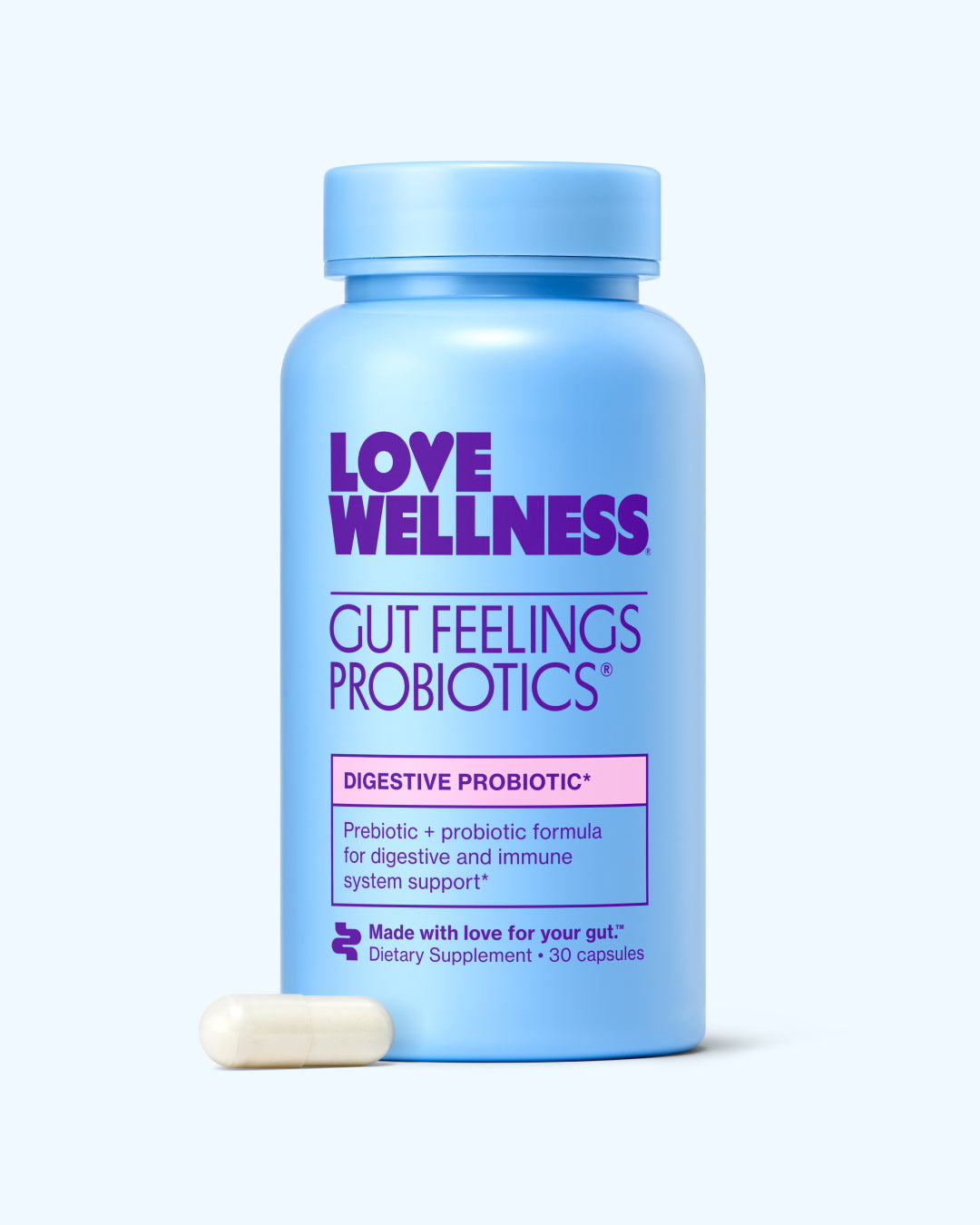Discover the Secret to Food Digestion and Immunity With Intestine Health Assistance

Recognizing Gut Wellness
Comprehending intestine wellness is crucial for total health, as it plays a substantial duty in food digestion, resistance, and also mental health and wellness. The intestine, comprising the stomach tract, is accountable for damaging down food, absorbing nutrients, and expelling waste. A well balanced gut atmosphere guarantees reliable digestion, enabling the body to use nutrients efficiently.
Additionally, gut wellness dramatically impacts the body immune system. The intestine houses a considerable part of the body's immune cells, and a healthy gut can aid repel microorganisms and decrease inflammation. Disturbances in intestine wellness can lead to an over active immune response, potentially contributing to autoimmune disorders and allergies.
Furthermore, the intestine is often described as the "2nd brain" because of the gut-brain axis, a complex interaction network linking the digestive tract and the brain. This link affects state of mind, cognition, and emotional well-being. Problems such as dysbiosis, identified by an inequality in digestive tract germs, have been associated with mental health conditions, consisting of stress and anxiety and clinical depression.
The Digestive Tract Microbiome Explained
The digestive tract microbiome, a varied community of bacteria living in the stomach system, plays a pivotal function in keeping gastrointestinal health and wellness and overall well-being. Comprising trillions of germs, viruses, fungis, and other microbes, this complex ecological community help in the digestion of food, the synthesis of essential nutrients, and the policy of metabolic processes.
Each person's intestine microbiome is unique, influenced by factors such as diet regimen, way of living, genetics, and ecological exposures. A well balanced microbiome sustains optimum food digestion by damaging down facility carbs, producing short-chain fats, and assisting in the absorption of nutrients. On the other hand, a discrepancy, typically referred to as dysbiosis, can cause gastrointestinal conditions, consisting of cranky bowel syndrome (IBS) and inflammatory digestive tract disease (IBD)
Study has actually demonstrated that a diverse microbiome is associated with much better health results, emphasizing the value of dietary options in supporting these microorganisms. Foods abundant in fiber, probiotics, and prebiotics, such as fruits, veggies, and fermented products, can advertise a healthy microbiome. Comprehending the digestive tract microbiome is necessary for developing targeted treatments intended at improving digestive system health and preventing intestinal illness.

Connection Between Food Digestion and Resistance
A durable connection exists between digestion and immunity, highlighting the important role of the digestive tract in preserving overall health. The stomach system is home to trillions of microbes that create the gut microbiome, which substantially influences both immune responses and digestive procedures. This complicated ecological community aids in breaking down food, absorbing nutrients, and providing crucial metabolites that support immune feature.
When digestion is effective, the digestive tract obstacle continues to be undamaged, protecting against unsafe pathogens from getting in the bloodstream (gut health supplement). Conversely, inadequate food digestion can lead to a discrepancy in the microbiome, leading to dysbiosis, which has actually been connected to numerous health and wellness issues, consisting of autoimmune diseases and inflammatory conditions. Around 70% of the immune system stays in the gut-associated lymphoid tissue (GALT), which connects closely with the intestine microbiome. This interplay makes sure that the body immune system can efficiently identify in between damaging and helpful substances.
Tips for Sustaining Gut Health And Wellness
Supporting intestine health and wellness is crucial for keeping both digestive system performance and a well-functioning body immune system. To cultivate optimum digestive tract wellness, consider including several practical strategies right into your everyday regimen.
First, focus on hydration. Consuming alcohol ample water sustains digestion and aids maintain the mucosal lining of the intestines. In addition, normal exercise can boost digestive tract mobility and promote a diverse microbiome.
Mindful eating techniques are additionally necessary. Chewing food thoroughly and consuming slowly can help digestion and prevent overindulging, which might worry the intestine. In addition, managing tension with techniques such as reflection, yoga exercise, or deep-breathing exercises can favorably affect gut health and wellness, as stress and anxiety is known to interfere with gastrointestinal processes.
Incorporating prebiotics and probiotics into your routine is another efficient approach. While certain foods will be discussed later on, recognizing the value of these components is gut health supplement important. Prebiotics work as food for beneficial intestine microorganisms, while probiotics introduce online valuable organisms.
Finally, prevent excessive use anti-biotics, as they can disrupt the balance of gut flora. By complying with these suggestions, you can significantly add to the upkeep of a healthy digestive tract, which is important for general health and vitality.
Foods That Promote Intestine Health

Fermented foods, such as yogurt, kimchi, kefir, and sauerkraut, are rich in probiotics, which are valuable bacteria that support digestive tract flora and enhance food digestion. These foods can assist bring back balance in the intestine, specifically after antibiotic use or digestive disruptions.
In enhancement to fermented options, prebiotic foods, such as garlic, onions, asparagus, and bananas, function as sustenance for these probiotics, promoting their growth and activity. These soluble fibers support digestive tract mobility and can minimize problems like constipation.
Additionally, incorporating high-fiber foods, consisting of whole grains, vegetables, fruits, and vegetables, is vital for preserving a healthy gut. Fiber aids in normal digestive tract activities and helps protect against digestive conditions.
Finally, omega-3 fatty acids discovered in fatty fish, flaxseeds, and walnuts have anti-inflammatory residential properties that can even more support intestine health and wellness. Highlighting these foods in your diet can cause a durable digestion system and enhanced immune function.
Final Thought
In final thought, focusing on digestive tract wellness is essential for maximizing digestion and boosting resistance. A balanced digestive tract microbiome, influenced by dietary choices and way of living factors, plays an essential duty in nutrient absorption and additional info inflammation decrease. Incorporating fermented foods, prebiotics, and high-fiber choices, alongside correct hydration and stress monitoring, can significantly advertise gut wellness. By taking on these techniques, individuals can support overall wellness and vitality, opening the potential advantages of a well-functioning intestinal system.
Recognizing intestine wellness is vital for general well-being, as it plays a considerable function in digestion, immunity, and also psychological health and wellness. The digestive tract houses a significant section of the body's immune cells, and a healthy and balanced digestive tract can assist fend off pathogens and decrease inflammation.Furthermore, the gut is typically referred to as the "second mind" due to the gut-brain axis, a complex communication network linking the mind and the digestive tract.A robust connection exists in between food digestion and immunity, highlighting the essential duty of the gut in keeping overall wellness.In conclusion, prioritizing digestive tract health and wellness is crucial for enhancing digestion and boosting immunity.